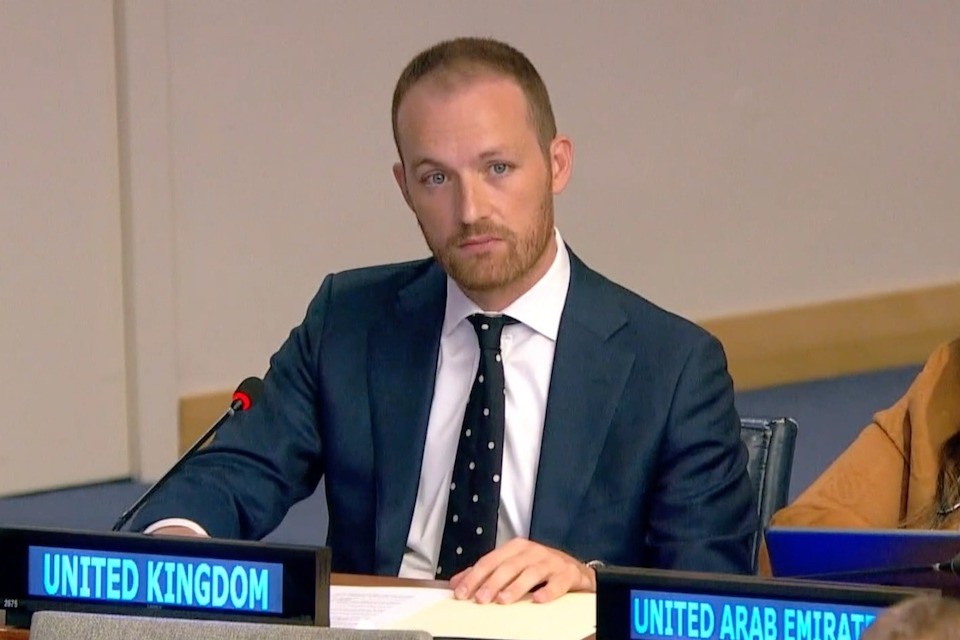It is our responsibility as Member States to unequivocally condemn disinformation, especially when it provokes or encourages threats to peace or acts of aggression.
Statement by Mungo Woodifield, UK Spokesperson to the UN, at the UN Fourth Committee, 12th meeting - General Assembly, 77th Session

Thank you Mr Chair, Distinguished colleagues,
I would like to start by thanking Under-Secretary-General Fleming and the Department of Global Communications for their engagement with Member States, through reports submitted to the Committee on Information, as well as regular updates and exchanges on the work of the Department.
The United Kingdom welcomes the Department’s work to improve the UN’s strategic communications, news, media and outreach activity as well as its leadership and innovation in response to the complex communications challenges that face us.
The Department has continued to expand its reach through innovative partnerships and has been successful at mobilising wide and diverse audiences. These efforts are necessary to meet the growing demand around the world for accurate, impartial and comprehensive information on the most pressing global issues, such as Covid-19, the Climate Crisis, or Russia’s war of aggression in Ukraine.
On these topics and others, people are looking at the UN now more than ever as a source of trusted information and we have to acknowledge that part of the reason why is that disinformation, propaganda and lies are out there in the world like never before. An infodemic carried on vectors of digital technologies and media.
We also need to be frank that this infodemic has a source and it is important that we focus our attention on “information manipulation, including disinformation, by states” and we recognise, this year in particular, the disinformation dimension of Russia’s aggression against Ukraine.
Since launching its invasion in February, the Kremlin’s propaganda machine has been in overdrive. The Russian government has lied to the world, lied to Ukrainians, lied to its own people and lied to itself. President Putin wants truth to be a casualty of this war, but we will continue to tell the truth about Russia’s aggression, including the strong evidence of war crimes that we are seeing committed in Ukraine.
The UN must do the same, guided by the language in resolutions adopted overwhelmingly by the General Assembly and the Secretary-General’s clear statements about Russia’s violations of the UN Charter and its aggression. The entire UN system must be consistent in how it describes this war.
Because this offensive against truth has global consequences. Russia’s disinformation about its invasion of Ukraine threatens to undermine public trust in the media and also confidence in public and international institutions, including the UN.
This really matters because if they succeed, then we will all fail. It is our responsibility as Member States to unequivocally condemn disinformation, especially when it provokes or encourages threats to peace or acts of aggression.
The ideals enshrined in the UN Charter cannot be realised in a world in which truth is obscured by State propaganda and muzzled media freedoms.
Together through our work in this Committee and in partnership with the UN, we can challenge disinformation and protect the space for impartial and accurate reporting of the threats and challenges that the UN was founded to address.